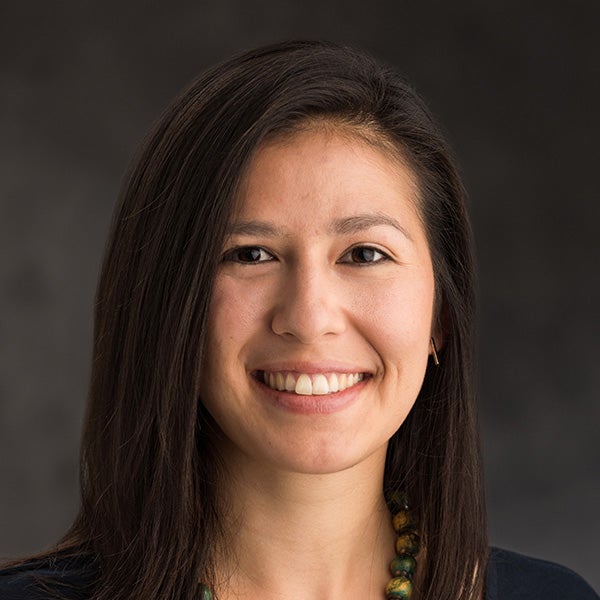The Ken Kennedy Institute's March Member of the Month: Lauren Stadler, Assistant Professor of Civil and Environmental Engineering; Research Faculty, NEWT.
Lauren Stadler is an environmental engineer with 13 years of experience whose research focuses on wastewater-based epidemiology, environmental antibiotic resistance, wastewater treatment and resource recovery, and environmental synthetic biology. She works closely with the city of Houston to monitor wastewater for pathogens such as SARS-CoV-2, influenza and respiratory syncytial virus (RSV) to inform public health decisions.
She joined Rice University in 2016 as an assistant professor for the Department of Civil and Environmental Engineering (CEE) after earning her Ph.D. in environmental engineering at the University of Michigan. She was named a New Engineer to Watch by the Water Environment Federation, a Gulf Research Program Early Career Fellow by the National Academies of Science, Engineering, and Medicine, and a Johnson & Johnson WiSTEM2D Engineering Scholar. The results of her work have been published in over 30 peer-reviewed journal publications and disseminated at numerous conferences and workshops. Stadler also received an NSF CAREER Award earlier this year.
How do you explain your research in one sentence?
The overarching goal of my research is to advance safe and sustainable wastewater systems that can be used to generate valuable resources and monitored to inform public health by studying the microbial communities present in them.
How does your work impact the community at large?
I develop and implement methods for monitoring disease targets in wastewater that can be used for public health surveillance and response. Wastewater represents a sample of everyone in the community who contributed to the waste stream, and thus understanding which microbes are present in a wastewater sample can tell us about what’s circulating in the community. It’s a resource-efficient and effective means to characterize and track diverse diseases, ranging from antibiotic resistant bacteria to respiratory viruses.
What kind of collaborations are you looking for at Rice and within the community?
I enjoy collaborators that I can learn from and who can enhance the impact of our shared research goals. Within the community, I actively collaborate with the local public health department and wastewater utility. At Rice, I work with collaborators in numerous fields who bring expertise and fundamental knowledge to problems that I care about. As an environmental engineer, my work is usually driven by the problem and the systems that I study, and I seek out collaborations that bring unique, domain-specific knowledge that can be applied to study questions relevant to wastewater systems and wastewater microbiology.
How do you see computation and data advancing in the future?
There is a wealth of information available in wastewater that we can mine to tell us about community health. I see computation and data advancing our ability to turn wastewater into a useful form of information that can be acted on to improve health outcomes, protect vulnerable populations, and enable a more sustainable future.
How do you see the Ken Kennedy Institute supporting you and/or your research?
Ken Kennedy Institute has facilitated interactions with faculty members across campus in diverse fields. I also appreciate the events and conferences organized by the Ken Kennedy Institute and have learned a lot listening to talks outside of my field.
What is your favorite book?
My favorite book to gift other academics is “Dear Committee Members” by Julie Schumacher. It’s short and humorous novel in the form of a collection of letters of recommendation, and a reminder to not to take things too seriously.
Do you have any words of inspiration would you like to share?
“Life is like a sewer: what you get out of it depends on what you put into it.”
_
Learn more about Lauren here.

